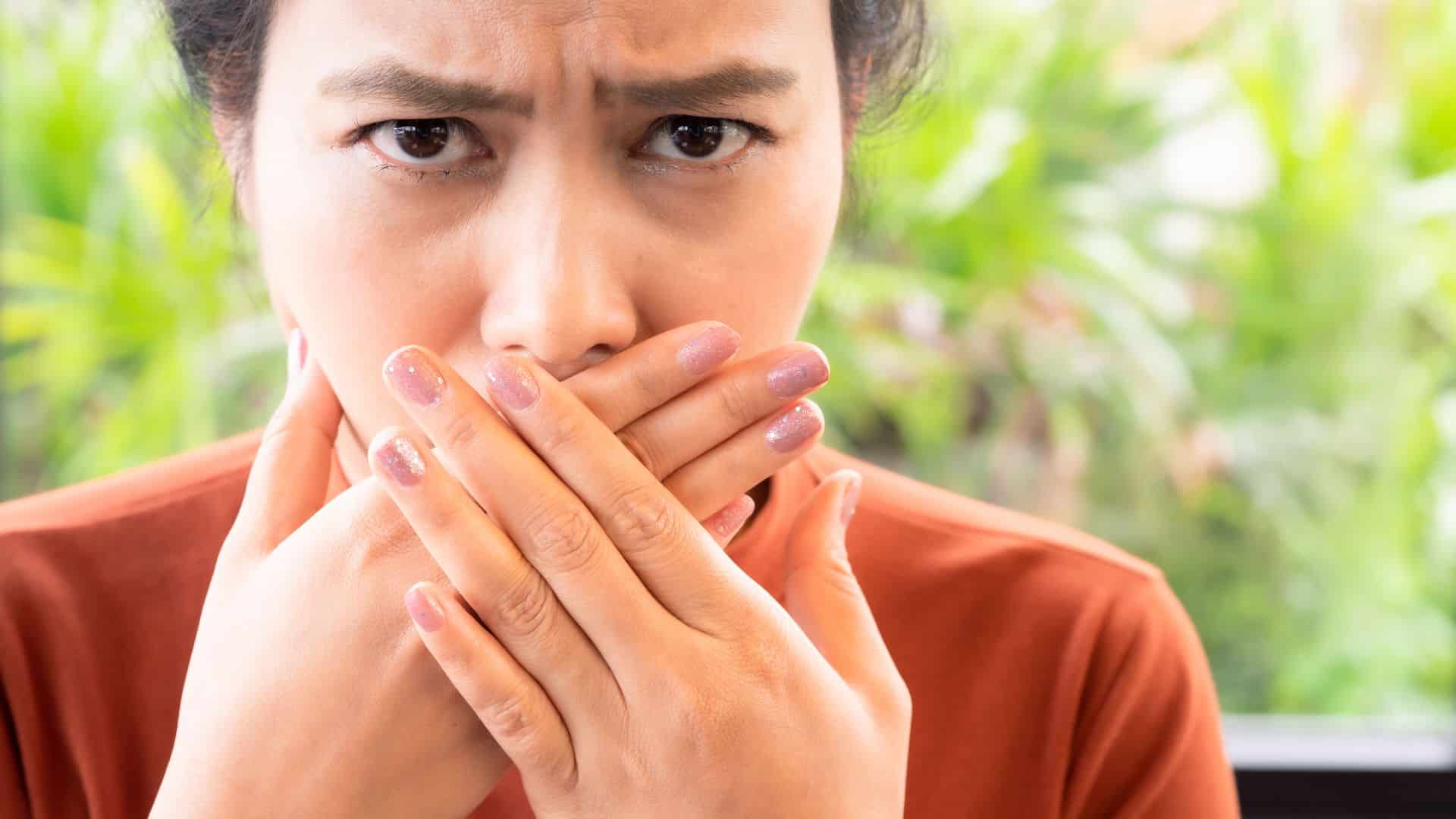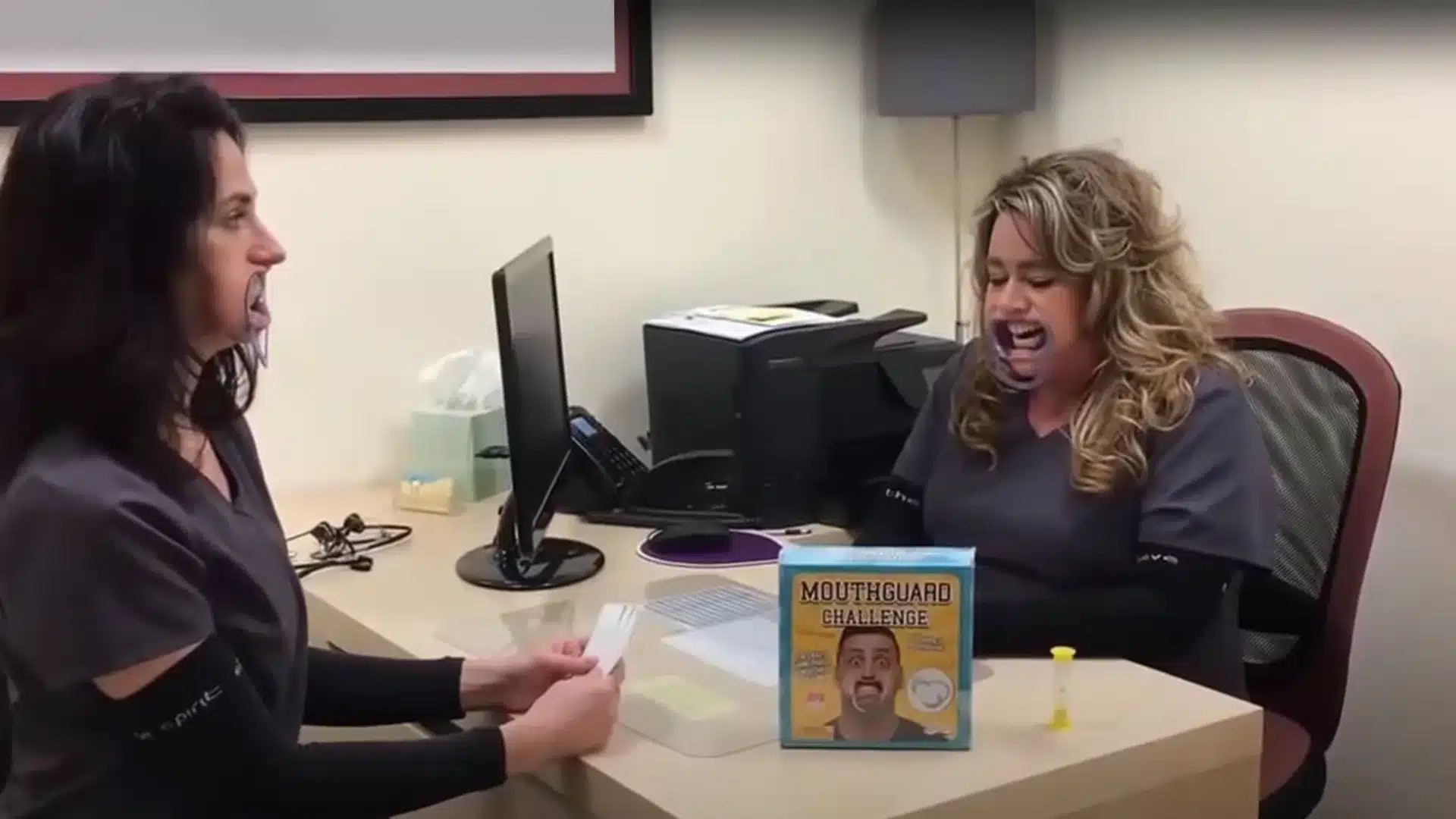Whenever I have a new patient in my chair, I always ask this same question: “As your dental provider, what would you like me to do to improve the health of your mouth?” One of the most common responses I get is, “How do I get rid of bad breath?” Many times the first thing I do is talk about what causes bad breath, immediately making them a partner in their treatment. In this blog post, I’m going to briefly review the info I share with my patients about the causes of bad breath.
Causes of Halitosis
Bad breath can really be embarrassing, especially when a friend or loved-one gives you a hint that your breath might not smell like roses. They are not alone, more than 70% of individuals have answered in published surveys that stinky breath can be a major turn-off. Halitosis, or bad breath, can have many different causes including poor oral hygiene, diet, tobacco products, dry mouth, bacterial infections, medications, and medical conditions.
Oral Hygiene
The most common cause of halitosis is poor oral hygiene. Get yourself on a routine of brushing and flossing on a regular schedule to prevent bacterial growth between your teeth, gums, and on your tongue. If you’re having persistent bad breath, and you also notice bleeding gums, this may be a sign that you have gingivitis or periodontal disease. These oral diseases are caused by plaque build-up, which irritates the gums making the tissue inflamed (caused by toxins released by bacteria which produce an unpleasant smell). No need to worry, this can be treated and will eliminate your halitosis.
Dry Mouth
Another cause of halitosis is dry mouth, or xerostomia, because your saliva is an important part of you immune system – it helps control bacterial growth in your mouth. Your saliva washes away the odor-producing bacteria that can be found in our mouth. There are multiple reasons why you might be suffering from dry mouth. Certain medications, medical conditions, and medical therapies, including radiation therapy for cancer, can decrease the flow of your saliva. Your dentist can work with your medical providers to help limit your dry mouth symptoms.
Food Choices
We’ve all heard of the saying, “You are what you eat!” Well, your breath could be caused by your diet. Dairy products, acidic beverages, and exotic spices can all contribute to your unpleasant breath. These foods either provide food to the bacteria in your mouth, change the acid level in your mouth to promote bacterial growth, or add sulfur compounds that give the stink to stinky breath. Volatile Sulfur Compounds (VSCs) are what the bacteria produce that cause bad breath. So when you are eating these types of foods you are basically adding the substances that the bacteria in your mouth need to make to produce halitosis. Also, though low car diets are sometimes quite popular, being on a diet that is low in carbohydrates contributes to the toxic-smelling, fruity, acetone-like odor called the “ketone breath.”
Preventing Halitosis
In most cases, your dentist can help you treat your bad breath especially when the cause is dental in origin. Dental treatment may include oral prophylaxis, scaling and root planning, or removing infections underlying your teeth or gums. If your dentist has suspected that your halitosis is not dental in origin, your dentist may refer you to your family doctor or a medical specialist to seek treatment. Some medical conditions such as diabetes, gastro-esophageal reflux disease (GERD), liver or kidney disease, Sjogren’s syndrome, throat infections, and respiratory infections such as sinusitis, bronchitis and pneumonia may also be the source of your bad breath.
Sometimes, bad breath can be prevented if you start doing good oral hygiene practices. Brush your teeth twice a day in order to remove food debris and bacteria, especially after eating. Also, don’t forget to brush and clean your tongue in the process. Brushing your teeth may not remove all food particles, especially those found in between your teeth, so it is advisable to floss regularly. If you smoke or chew tobacco, stop or ask advice on how to quit. Also, drinking lots of water may help eliminate bad breath because it can keep your mouth moist. Chewing sugar-free gums can also help induce production of saliva which can wash away bad bacteria found in your mouth. And last but not the least, make sure that you visit your dentist twice a year in order to have your teeth examined and cleaned thoroughly.
Have questions about bad breath?!
Contact us here at Drews Dental. The appearance of your teeth, face, and smile mean the world to us and that is why every single patient is treated and evaluated differently to fit their personal needs. We want you to be impressed when you enter our office and know you will be when your treatment is complete.





